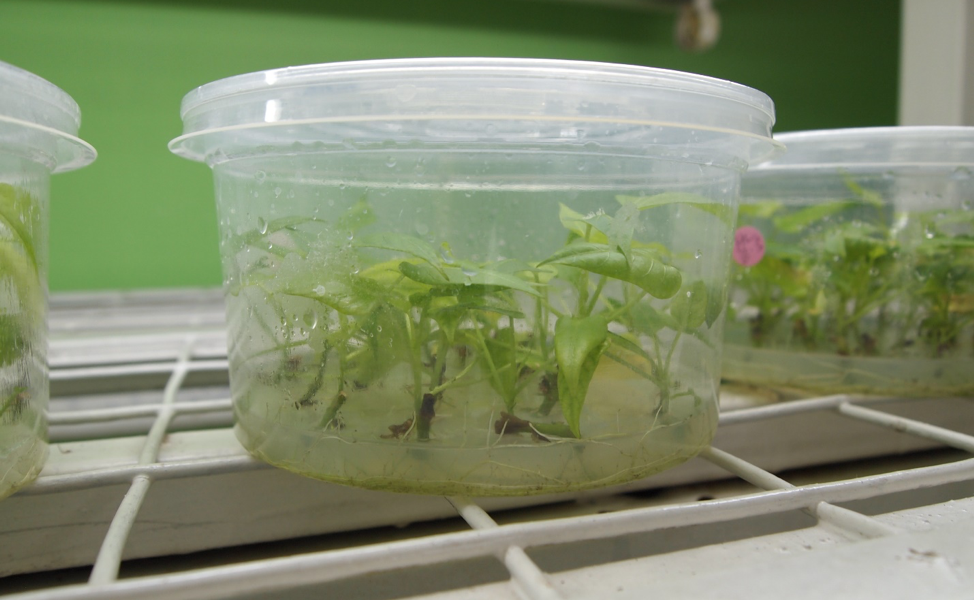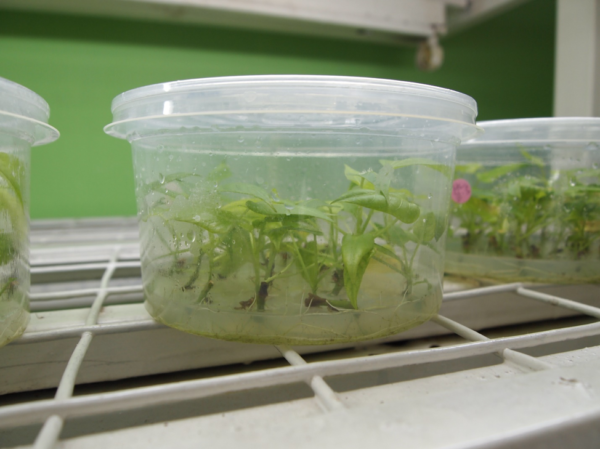Nearly every production manual for farmers begins with some version of the same statement: “for good production, make sure to use healthy, disease-free seed”. These well-meaning declarations can only be met with a sigh from many developing country farmers, for whom access to tested and certified clean materials often ranges from limited to nonexistent. This challenge is even more serious in root, tuber, and banana crops; staples of diets and economies across the tropics which are all vegetatively propagated crops (VPCs).
VPCs are typically not commercially multiplied through true seed, but instead clonally by cuttings of mother plants (for simplicity these cuttings are often still called ‘seed’). This clonal reproduction from one generation to the next preserves the crop’s genetic identity, but also creates an ideal situation for pests and diseases, which can accumulate in the field and be passed on to each successive generation, building up over time in a process known as ‘seed degeneration’.
Large seed companies have been slow to engage with many VPCs since farmers can regrow the crops year after year without repurchasing seed. However, degeneration means that in many contexts seed replacement may be necessary fairly frequently. In the absence of any certification, farmers are left to take their chances with variety and seed health when acquiring new seed.
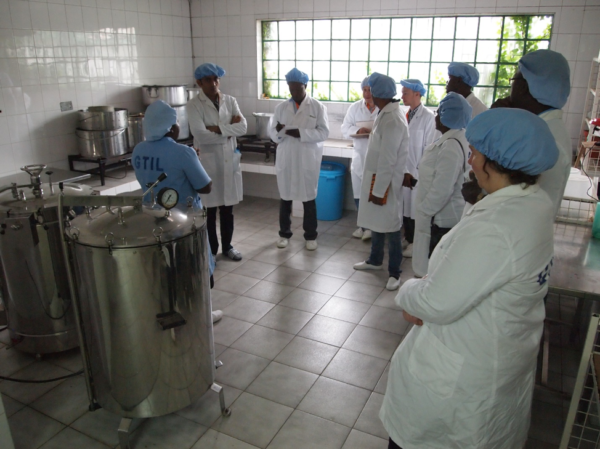
A group from RTB visits the GTIL laboratory in Nairobi. These vats are used for producing a lot of tissue culture media – the facility produces roughly half a million plantlets per year. Photo: E.Delaquis/CIAT
In Nairobi, Kenya, a local company is working to change this. Genetics Technologies International Ltd. (GTIL) first began operations in 1995, and through close collaboration with the Kenyan government, is able to provide tested, certified, clean seed to buyers. GTIL currently multiplies more than 10 varieties of potato, in addition to many popular varieties of banana, cassava, sweet potato, various fruit trees, and soon strawberry.
In late March of 2018, a group of researchers from the CGIAR Research Program on Roots, Tubers, and Bananas visited GTIL to explore the successes and challenges of making clean VPC seed a commercial winner in Kenya. The group was received at GTIL by Judith Kilonzo, laboratory manager. As she led a dozen staff through the laboratories and screenhouses, Judith began to explain GTIL’s history and business model.
Key to GTIL’s success is a close public-private partnership with the Kenya Plant Health Inspectorate Service (KEPHIS). KEPHIS, the government regulatory body for seed certification, processes plant materials for molecular diagnosis and identification of viruses, a process called indexing. Once these materials are confirmed to be disease-free, they are passed on to GTIL, who use strictly controlled conditions to multiply the material through several stages until the amount is enough to fill users’ orders. These users then further multiply the material under controlled field conditions.
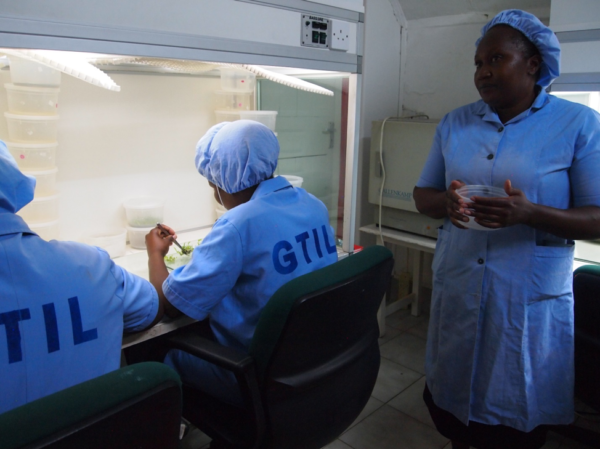
Judith Kilonzo, GTIL laboratory manager (right), demonstrates the procedure for transplanting plantlets into growth media. Photo: E.Delaquis/CIAT
GTIL’s major buyers to date include international organizations, notably the International Potato Center (CIP), other projects, and a handful of large farmers. One major buyer is Kisima Farm, located at the foot of Mount Kenya, in the Rift Valley some two hundred kilometers to the North of Nairobi. Beginning with GTIL’s seed, Kisima Farm has become Kenya’s largest producer of certified potato seed, generating over 200,000 minitubers and 2000 tons of certified seed potatoes per year.
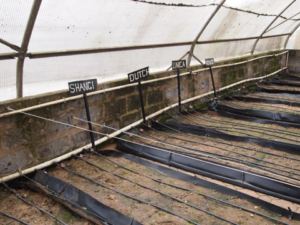
Screenhouses with sandponics and aeroponics for production of clean seed at GTIL. Photo: E.Delaquis/CIAT
To grow into what it is today, GTIL blossomed out of a connection with Stokman Rozen Kenya (SRK), the largest producer of top-grafted roses in Africa. Like roots and tubers, high value crops such as roses and fruit trees are also VPCs, and their production employs similar technologies and techniques. SRK has since gone on to diversify its production to include sizable banana, potato, and strawberry operations. Although independent, SRK and GTIL operate in close communication to fill clients’ needs, and to collaborate on transfer of new varieties and multiplication technologies.
Having a starting source of guaranteed clean seed of significant crops is a critical component of assuring food security in any country. So could GTIL’s model be replicated in other places, or is it a unique one-off scenario? GTIL’s answer is optimistic – they are already eyeing expansion to several neighboring countries in coming years.
Blog contributed by Erik Delaquis, International Center for Tropical Agriculture (CIAT)
